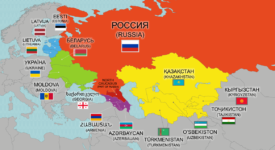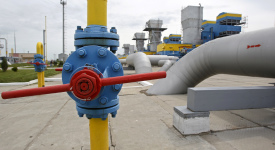Amid the mounting economic uncertainty and looming recession, the Covid-19 crisis is teaching companies logistical lessons, and particularly the need to produce things at home or closer to home. Eastern Europe remains competent and cheaper, and can make the difference in the EU supply chain, says Radu Magdin, who is a global analyst and consultant, and previously also an advisor to the prime ministers in Romania and Moldova.
With the €500 billion package agreed by the Eurogroup last week to support member states, companies and workers in the coronavirus crisis, it is, however, not clear what will happen to the 1/3 non-eurozone countries out of a total of 27 EU member states. Brussels should beware of the continuous need to be on call and swiftly respond to capital’s needs in the months to come. This will be a prolonged recession, and avoiding a great depression is also about how we can find better solutions, including on the pan-EU and citizen communications front. Protecting workers across the bloc has never been more important, but this “protection” should mean that Eastern non-eurozone countries now protect their workers by reexporting them to Western countries, the latter realizing amid the coronavirus logistical stalemate that Easterners are in fact great seasonal – or permanent – workers.
If Eastern non-eurozone countries are left out, the North-South previous crisis rift will leave way for a renewed West-East one, on a euro-non euro dividing line. This frustration will not be helping the ambitious plans of a Geopolitical Commission, in terms of internal cohesion, strategic autonomy, Green Deal, or global Europe projections. So, Brussels must tread carefully in the weeks and months to come, and act as both peacemaker and dealbreaker. But not all is gloomy because (almost) every crisis also brings opportunities. This crisis also taught us logistical lessons, and particularly the need to produce things at home or closer to home. To prevent a wave of strongmen temptations and renewed nationalism, EU mechanisms should be put in place to implement economic opportunity. Eastern Europe remains competent and cheaper, and can consolidate as part of West’s or North’s supply chain.
“Made in EU” products and services are better actually wholly made in the EU. There is no more reliable logistical chain than the one close to you, which TEN-Ts are supposed to further strengthen. Isn’t it better to wait for your spare parts via Bucharest-Bratislava-Berlin than get blood pressure nowadays due to global mishaps? So, in the rethinking of global supply chains, it’s a wise investment to think regional and CEE, or the EU South, for the richer Western and Northern partners in the European family. This would help EU cohesion, solidarity and it’s also an investment in our mutual prosperity. Also, pan-European East-West, North-South, in fact in all directions investment connection, including via M&As to create European champions that both respect competition laws at home (for consumer sake) and compete abroad (for Global Europe’s one) is a great solution. A German-Swedish-Romanian or a Spanish-Polish-Greek global champion would also work better cross-culturally, and avoid episodes like the ones experienced by Renault Nissan. Dacia Renault proves it: more EU is best for all inside!
Article Categories:
ECONOMY & TRADE






